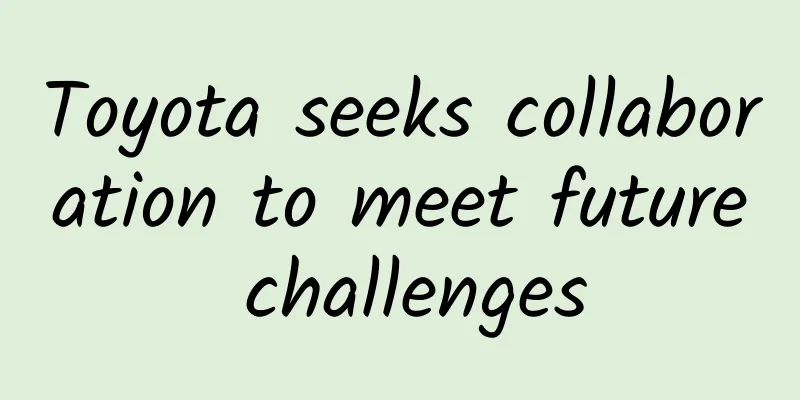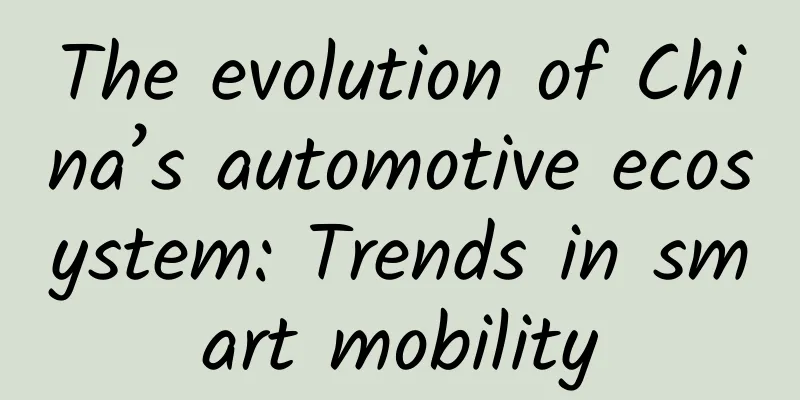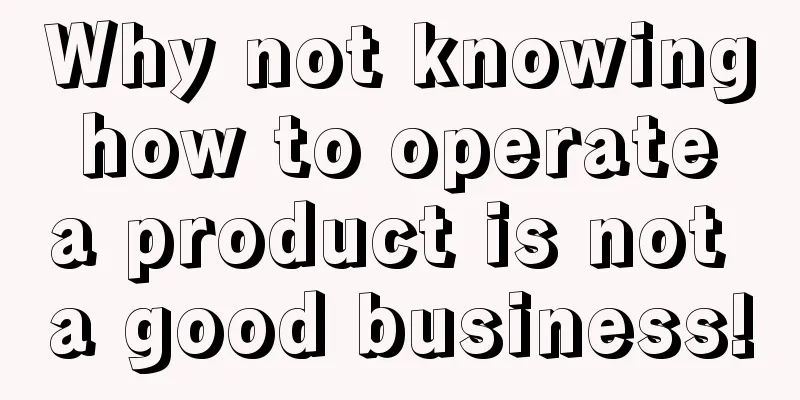Toyota seeks collaboration to meet future challenges

|
Recently, according to foreign media reports, Toyota Executive Vice President Didier LeRoy said that Toyota is currently looking for partners to meet the challenges posed by new car companies such as Uber. On June 21, local time, LeRoy told the media that Toyota is not behind other automakers in formulating a mobility strategy, and Toyota does not want to fight alone. "The public thinks we are just catching up with the pace of development, but in fact we are just executing a plan from many years ago," LeRoy said. LeRoy is a Frenchman and Toyota's highest-level European executive. LeRoy said that in recent years Toyota has begun to cooperate with well-known technology companies including Microsoft and Nvidia, and has also participated in a series of cooperation, so as to gain greater visibility and media exposure. "We will not fight alone, because the automotive industry is changing rapidly and many emerging competitors are very agile." LeRoy explained the thinking behind Toyota's mobility strategy, which Toyota calls "the freedom of mobility for all." "Everyone wants to be a mobility service provider. We are still proud of our identity as an automaker, but at the same time we know that a lot of changes are happening in the world." Toyota has a stable and sustainable growth as an automaker, LeRoy said. "We can say that this is not terrible, we can be satisfied with this, and Toyota can continue like this for many years." But at some point, around 2030, the global auto market will likely begin to decline due to emerging trends such as traffic congestion, urban access restrictions, regulatory developments, conventional energy depletion, and new consumer behaviors and demands. "In the long term, market and sales growth are not stable," LeRoy said. "Obviously, turnover and profit growth in manufacturing is uncertain, so we have to change our business model." Toyota will also participate in car-sharing, but LeRoy described a broader model in which future mobility is "green and clean," safe, connected and convenient for all consumers. LeRoy said clean mobility would not only reduce tailpipe emissions by 90 percent between 2010 and 2050, but also include zero-emission production. "By 2050, we won't have any conventional engines in our cars," LeRoy said. Toyota's vehicles will use a range of high-tech technologies, including hydrogen fuel cells and other batteries. LeRoy said Toyota has chosen fuel cells as the best zero-emission solution because their range and refueling time are the same as internal combustion engines, but Toyota "will not forget" electric vehicles. In 2016, Toyota created a research and development center to develop battery electric vehicles, drawing on Toyota Group companies such as Denso Corporation, Aisin Seiki and Toyota Industries. To promote the development of intelligent networking, Toyota has partnered with Microsoft to create the Toyota Connected subsidiary, which has established a data and communication platform for mobile services such as car sharing and Toyota Smart Center. Toyota has also created the Toyota Research Institute to develop "indoor mobility" services using artificial intelligence technologies for autonomous vehicle safety and robots. In addition, Toyota is also focusing on the travel methods of the aging and disabled population. In short, "Toyota is reinventing itself," Leroy said. Many years ago, Toyota was a loom company before it transformed into a car company, Leroy noted. "We fully believe that Toyota is at the same inflection point now." Right now, 92% of Toyota's growth is based on manufacturing and sales, with services accounting for just 8%. Over the next 20 or 30 years, economic growth will be more balanced, Leroy said. As a winner of Toutiao's Qingyun Plan and Baijiahao's Bai+ Plan, the 2019 Baidu Digital Author of the Year, the Baijiahao's Most Popular Author in the Technology Field, the 2019 Sogou Technology and Culture Author, and the 2021 Baijiahao Quarterly Influential Creator, he has won many awards, including the 2013 Sohu Best Industry Media Person, the 2015 China New Media Entrepreneurship Competition Beijing Third Place, the 2015 Guangmang Experience Award, the 2015 China New Media Entrepreneurship Competition Finals Third Place, and the 2018 Baidu Dynamic Annual Powerful Celebrity. |
<<: Xiaomi releases mobile phone processor: worth 100 million yuan, still born for enthusiasts!
Recommend
How much does it cost to be an agent for a pet mini program in Chizhou?
How much does it cost to be an agent for a pet mi...
How to plan a live e-commerce event
Live streaming began to explode in 2015, sparking...
9 very useful traffic marketing software and tools
WeChat marketing promotion focuses on thinking an...
How to design the "Enterprise WeChat + Mini Program + Live Broadcast" fission matrix
Today I will share with you how to design the &qu...
Peak has passed, consumer expectations for wearable devices plummet
[[146121]] Interest in the Apple Watch and other ...
How to join the Tik Tok video partner program? What are the requirements for joining the Tik Tok video partner program?
The mid-length video partner program launched by ...
Beware! Don’t reheat these 6 foods. Throw them away if you can’t finish them.
This article was reviewed by Pa Li Ze, chief phys...
CAC2.0 "From Picking Up Girls to Long-term Relationships" - Tips for Picking Up Girls
Course Contents: 1. Long Frame vs Short Frame.mp4...
Microsoft is confident that Windows 10 can reverse the decline
In fact, this topic has been brought up constantl...
Guangzhou server rental configuration price list?
Guangzhou server rental configuration price list?...
Defeating the human champion! What does AI's success in drone racing mean?
For the first time, a drone successfully defeated...
What year is 2022?
Source: People's Daily Client, Produced by: L...
A must-read for APP promotion: A simplified version of "A Mid-Year Review of the Domestic Mobile Phone Market", with useful highlights!
The data in this report comes from Jiguang Big Da...
iOS 14 second developer preview released: introducing many detailed adjustments
For developers, Apple today released the second b...
Logical structure thinking training camp course
Improve the clarity of thinking and problem-solvi...









